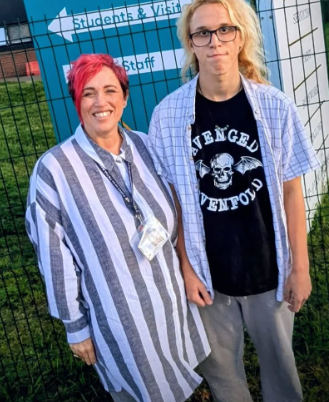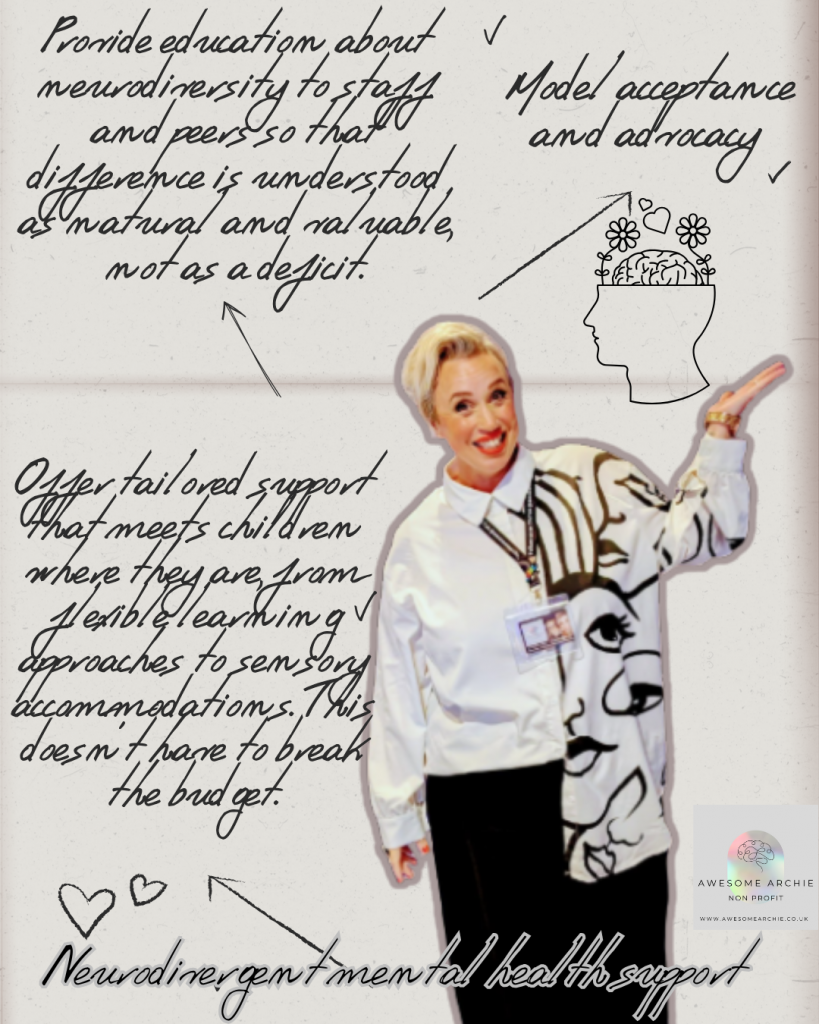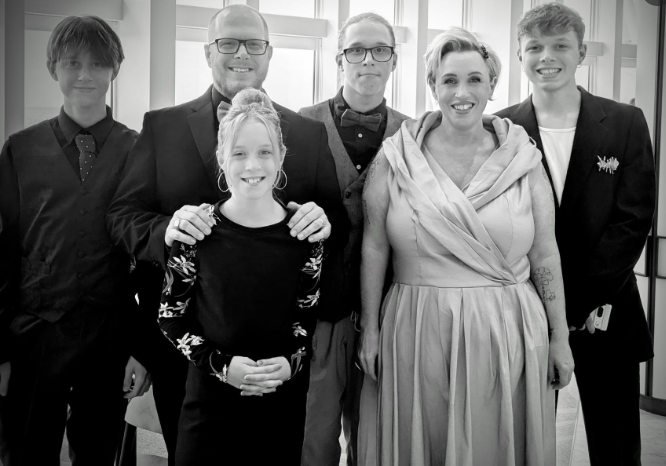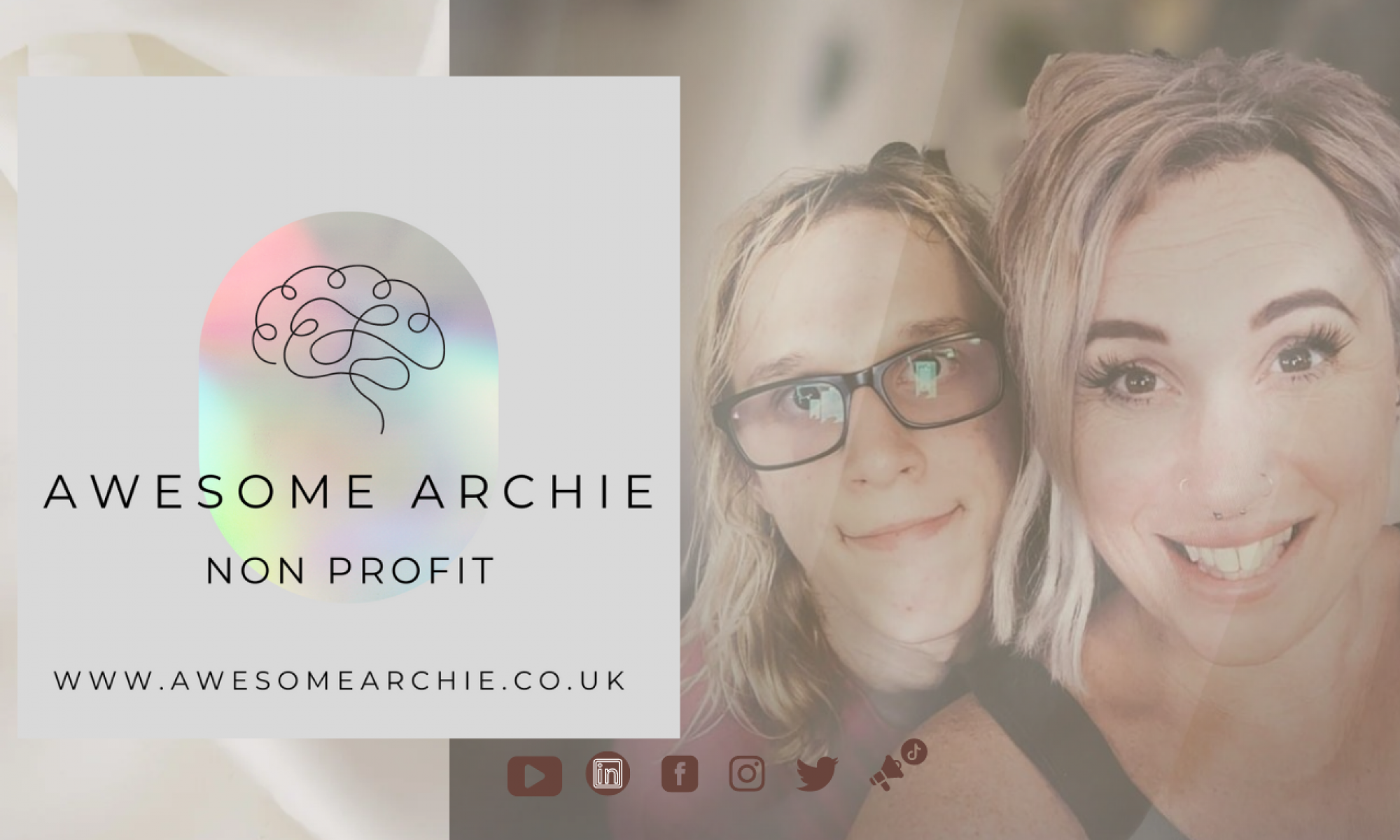
Now before you panic, we want to reassure you, it is NEVER too late to make positive changes. If you are worried that the childhood period has passed so you cant support, you can take a breath. This is simply the ideal from my own lived experience.
We know that across the world, autistic adults (like me) are experiencing high levels of mental health struggles—often linked not to neurotype itself, but to how the wider society has misunderstood and treated them. Anxiety, depression, burnout, and isolation are super common outcomes for people who grow up feeling unseen, misunderstood, or pressured to “mask” who they are. If we want to change the ending to this really sad story, the solution has to begin much earlier: in schools.
It seems as though the children who are supported, educated, and advocated for in their early years are more likely to grow into self-assured, self-aware adults. Assured adults are not accidental—they are nurtured by environments that recognise their value, listen to their voices, and affirm their differences.
For us as an organisation, we feel that for many autistic children, the experience of being “seen” is transformative. When educators, peers, and families take the time to understand their individual needs and perspectives, they learn that their feelings matter. Validation gives them the courage to express themselves and the resilience to navigate those daily challenges. On the other hand, being ignored or dismissed can plant seeds of self-doubt that can follow them into adulthood.
Archie and I truly believe that a child who feels safe sharing their emotions in school is more likely to grow into an adult who can regulate, reflect, and advocate for their mental wellbeing in adulthood.
So what can schools do NOW?
Schools are uniquely placed to prevent future mental health struggles among autistic adults. What a gift that is! Schools can:
- Provide education about neurodiversity to staff and peers so that difference is understood as natural and valuable, not as a deficit.
- Offer a tailored support that meets children where they are, from flexible learning approaches to sensory accommodations. This doesn’t have to break the budget.
- Model acceptance and advocacy so children see adults standing up for their needs and, eventually, learn to do the same for themselves.
- Encourage self-awareness by teaching children to name and understand their emotions without judgment.

These steps won’t just create a more inclusive classroom; they can create lifelong protective factors against poor mental health in adulthood. That is LIFECHANGING!
Why WE Encourage Advocacy Beyond the Classroom.
Support also means advocating for children within systems—whether it’s securing the right educational support, ensuring their voices are heard in decisions, or challenging stigma in our wider society. When kids grow up with champions in their corner, they are more likely to internalize the belief that they deserve respect and care. We at Awesome Archie want to champion YOU!
From “Seen” Children to Thriving, Mental Health Aware Adults
For us it seems that assured and self-aware autistic adults will come from autistic children whose feelings were heard, whose differences were honored, and whose identities were celebrated. Schools and parents have the power to reduce the number of autistic adults struggling with their mental health—not by “fixing” them, but by building environments where they are safe to be wholesomely themselves.
The path to healthier autistic adulthood is clear: support, education, and advocacy today creates resilience, confidence, and self-acceptance tomorrow.
Lifelong change begins by truly seeing the child that is right in front of us now!

